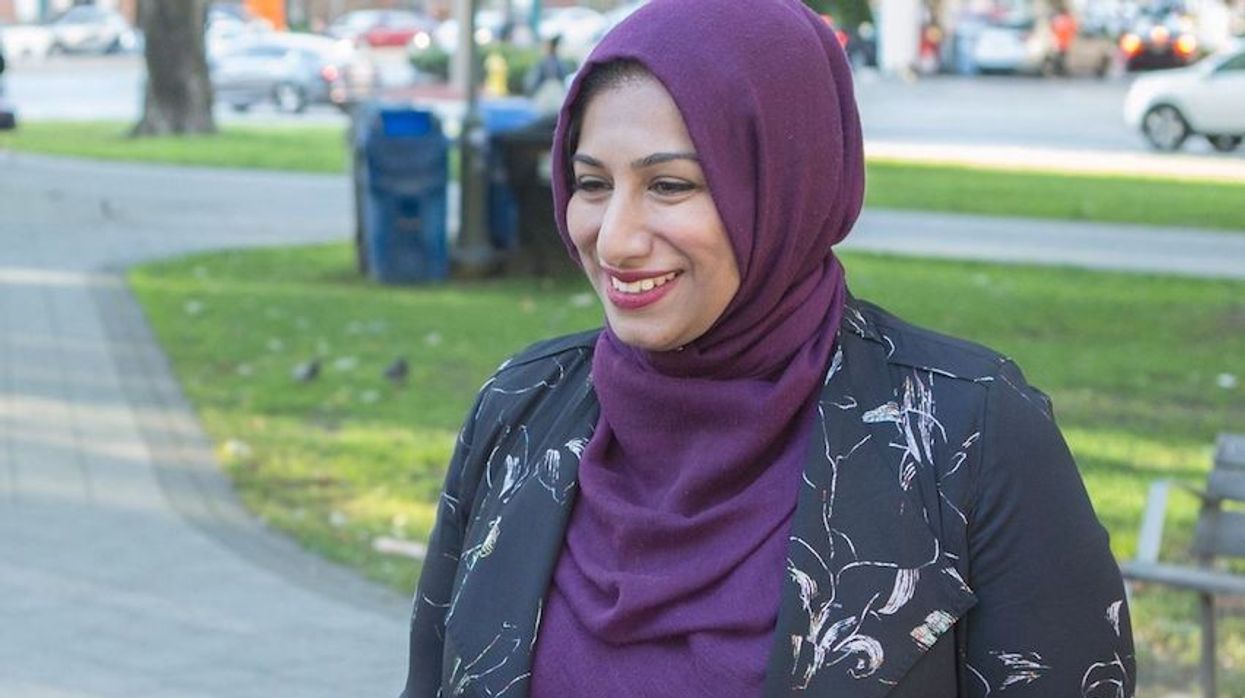Toronto-raised Ausma Malik drummed up no shortage of support this municipal election. Her campaign -- which hinged on the idea of creating a “Toronto for all” -- was one that resonated, as did her specific priorities for tackling housing affordability, enforcing stronger rent controls, and getting more rental and non-profit housing built.
After sailing past her 11 competitions and receiving 36.55% of the votes at last week’s election, Malik was elected City Councillor for Ward 10, Spadina-Fort York -- one of the densest and fastest-growing districts in Toronto -- filling the shoes of incumbent Ward 10 councillor Joe Cressy, who announced his resignation in April. Malik is the first hijab-wearing Muslim to secure a seat on Toronto’s City Council and to be elected to public office in Canada.
Malik set out to make Toronto a better and more inclusive place long before running for City Council -- her portfolio includes non-profit work, environmental activism, child care advocacy, and policy innovation, amongst more -- and she has big plans for her new post. Here’s what she has in store for the city’s hottest topic: housing.
- Ending exclusionary zoning to get more higher density housing built across the city, and supporting sustainable infill construction to jump-start the development of more housing supply.
- Utilizing city-owned sites for new affordable, rental, and non-profit housing developments, and identifying more opportunities to collaborate with non-profit partners and Toronto Community Housing.
- Backing the city-wide legalization of rooming houses, middle housing, and high-density housing close to public transit.
- Supporting retrofit and renovation projects that can go hand-in-hand with sustainable housing creation, and working with new construction projects to achieve a net-zero goal.
- Enforcing short-term rental regulations and returning “ghost hotel” inventory to the housing market.
- Increasing the Vacant Home Tax to discourage speculation in the housing market.
- Expanding rent supplements and the rent bank to help those at risk of eviction, and putting more resources towards the RentSafeTO program to ensure tenants are being properly protected and apartment maintenance standards are being met.
- Backing rent control measures -- including ending the rule that excepts new buildings from rent control -- and advocating for the end of vacancy decontrol.
- Prioritizing the construction of co-ops and non-profit housing, clearing the repair backlog at Toronto Community Housing, and putting more resources behind Toronto’s Multi-Unit Rental Acquisition Program, which supports non-profits to purchase, renovate, and operate at-risk market rental properties for residents with low to moderate incomes.
- Harmonizing residential property taxes -- which currently tax apartments at a higher rate.
- Creating a one-stop application process for all affordable housing units through Housing Connections.
- Creating a housing plan that prioritizes housing the homeless, building supporting housing in areas that will allow users to stay connected with their community, and expanding short-term capacity in shelters and respites to reduce overcrowding.





















